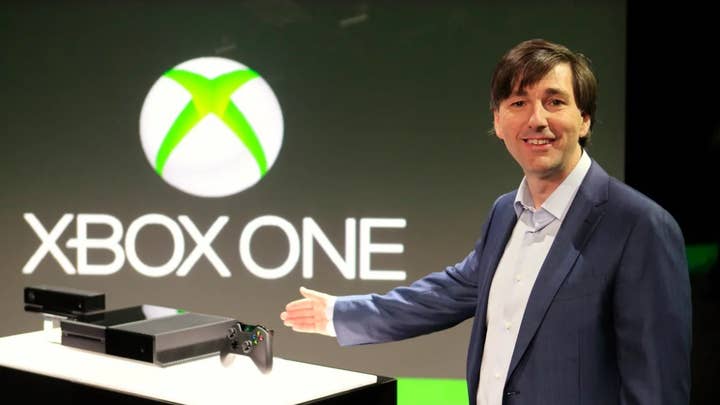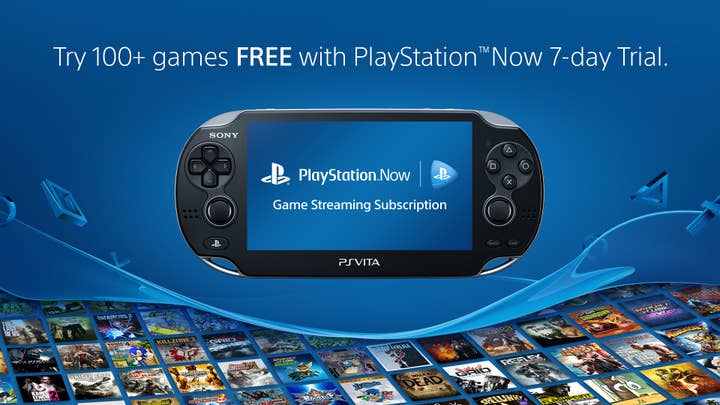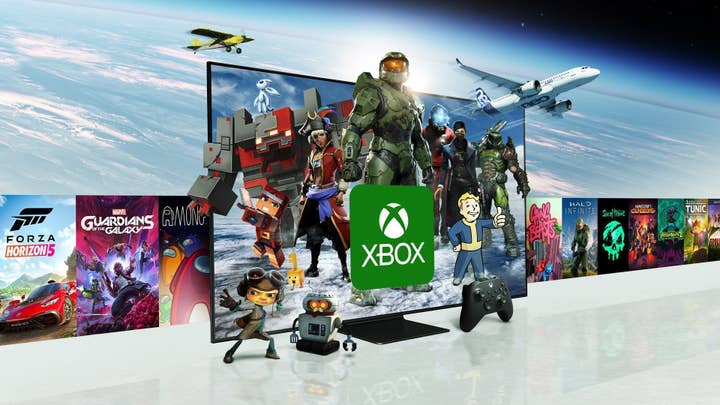Why Microsoft's Activision Blizzard deal shouldn't go through, and why it will | This Week in Business
Microsoft's past use of market leadership leverage is concerning, but Sony might have the means to compete in the cloud regardless
This Week in Business is our weekly recap column, a collection of stats and quotes from recent stories presented with a dash of opinion (sometimes more than a dash) and intended to shed light on various trends. Check back every Friday for a new entry.
It's been over a year now and Microsoft and Activision Blizzard have officially become the worst "Will they or won't they?" of all time.
(Yes, even worse than Ross and Rachel.)
(No, I did not forget that Ross was part of Ross and Rachel. Just accept the premise so we can get on with the column.)
I don't know about you, but I'm ready for this thing to be over. Thankfully, we're making some progress toward that goal, as the UK Competition and Markets Authority this week issued its provisional ruling on the Microsoft acquisition of Activision Blizzard.
QUOTE | "Given we have provisionally found that Microsoft already has a strong position in this market through its ownership of Xbox, a global cloud computing service, and the leading PC operating system (OS), we are concerned that even a moderate increment to its strength may be expected to substantially reduce competition in this developing market to the detriment of current and future cloud gaming users." – The UK CMA weighs in.
As for ways Microsoft could address those concerns, the CMA suggested "structural remedies," like acquiring Activision Blizzard without the Activision division. Just sell that, or spin if off, either one. Oh, and Blizzard too might be good to toss aside, just to be safe.
The leaves King, really. The CMA frowns on Microsoft acquiring Activision Blizzard, but it can grab the Candy Crush making King division to prop up its surprisingly small presence in mobile gaming. Of course Microsoft can propose its own behavioral remedies instead, like a commitment to keep Call of Duty on rival platforms, and the CMA would have to consider it at least.
Now as a simple layperson, I took that provisional ruling to be a bad thing for Microsoft. But in a note to investors, Webdush analysts Nick McKay and Michael Pachter insisted it's Good, Actually.
QUOTE | "We read today's release as a signal that the UK knows it has a losing legal argument. In our view, the FTC figured this out late last year, and rushed to file suit to block the merger in the hopes of being first to extract concessions from Microsoft. We believe that the CMA reached the same conclusion during its review, and accelerated its formal objection to the deal and proposed remedies in order to step in front of the FTC and gain bragging rights. The FTC has as yet to offer proposed remedies, and the CMA, by listing onerous structural remedies, has positioned itself to be the 'dragon slayer' in this action." –McKay and Pachter tell investors the provisional ruling means the deal is close to approval.
I see the potential of Game Pass to become a Netflix of games, and I am deeply skeptical that a Netflix of games would be a good thing
I'm not going to suggest government regulators would be immune to careerism or petty rivalries with other regulators, but I'm not sure how much we should read into the CMA suggesting "onerous structural remedies" there, especially since the CMA's Notice of Possible Remedies on the matter (and on other, previous mergers it has examined) specifically says the regulator prefers structural remedies to behavioral ones because they deal more directly with concerns about lessened competition, while behavioral remedies are less likely to be effective in maintaining competition and require monitoring and enforcement.
Still, McKay and Pachter expect the deal will finally go through (without breaking up the company) by mid-May.
I don't personally think the deal should go through because I see the potential of Game Pass to become a Netflix of games, and I am deeply skeptical that a Netflix of games would be a good thing.
It also doesn't help that Microsoft is the one pushing for this. Credit where it's due, I like a lot of what Microsoft has done in the last few years. The brand has left behind its edgy roots in favor of inclusivity. By all accounts it's gotten better at dealing with independent developers. Its backward compatibility efforts are second-to-none in the console space (which is as much a slight on the console space as it is a compliment to Xbox). Game Pass has represented a good deal for consumers to this point, and developers I've spoken with have said the deals to put their games in the program have been fair enough.
But this is all coming from a Microsoft bringing up the rear in the console space. Treating developers and customers better is kind of important when you're struggling and need to win them over. But we've seen what Microsoft does when it has a dominant position in a market.
The one time Xbox had anything resembling a leading market share, it promptly tried to lock down physical copies of games with digital restrictions
Take Microsoft's hold of PC operating systems with Windows, for example. I have a deeply antagonistic relationship with my computer thanks to Microsoft, and I don't believe I'm the only one. It seems like anytime I want to use it for something, it tries to trick me into logging into some service I don't want or need, or upgrading my operating system. It asks me a yes/no question but only lets me respond with "yes" or "maybe later." And it doesn't stop once I make my wishes clear; at best it just lets me keep my computer the way I want it for a little while longer before it pesters me once again to use it in a way that makes Microsoft more money.
And then of course there was the whole Netscape Navigator-Internet Explorer fight, and the details of Microsoft's anti-competitive behavior therein have been faithfully preserved by the US Department of Justice for all to see.
Xbox has never been in danger of dominating the console market like it does PC operating systems, but if you'll remember the one time it had anything resembling a leading market share, it promptly tried to lock down physical copies of games with digital restrictions and require daily online check-ins for the system to keep working.

I don't trust Microsoft to shape the future of cloud gaming or subscriptions or any part of the industry with care for anything besides its bottom line. Because the pattern we see with companies like Microsoft time and again is that they get big by serving people's needs, but once people are locked in and reliant on them, they change the deal to maximize their take at the expense of everyone else.
QUOTE | "Here is how platforms die: First, they are good to their users; then they abuse their users to make things better for their business customers; finally, they abuse those business customers to claw back all the value for themselves. Then, they die.
"I call this enshittification, and it is a seemingly inevitable consequence arising from the combination of the ease of changing how a platform allocates value, combined with the nature of a 'two-sided market,' where a platform sits between buyers and sellers, hold each hostage to the other, raking off an ever-larger share of the value that passes between them." – Journalist/activist Cory Doctorow lays out a very familiar lifecycle in a recent essay well worth reading.
I like that essay, but I don't necessarily share Doctorow's optimism that enshittified platforms will in fact die.
Instead, it seems like they all too often linger on, becoming miserable things people resent having to deal with, but things they deal with just the same because the lock-in effect is just too strong. Sort of like utility companies.
Windows, Google Search, Amazon, and certainly Twitter are showing just how much worse you can make your product before people will leave en masse. All of these things seem demonstrably worse than they were even a handful of years ago, but with the potential exception of Twitter, I expect them all to be around a decade from now, albeit somehow noticeably worse than in their current state.
Cloud gaming remains a niche market, one with a clear leader in Microsoft, but without an entrenched and dominant player
If Microsoft ever gets a market-leading edge in the console space, I fully expect it to abandon every good decision it made to get that edge as soon as it sees an opportunity to use its leverage. And it's not that I think such crass incentives as profit are beneath Nintendo or Sony, but they've both been on top before. And while those stints led to some disastrous decisions each time – the Wii U, opting for cartridges on N64 and snubbing a PlayStation-precluding partnership with Sony in Nintendo's case, a stark moment of PS3 hubris in Sony's – those missteps hurt themselves moreso than the industry around them.
So no, I don't want this deal to go through. I kind of think it will though, because so much of the concern here is about Microsoft cornering the nascent market on cloud gaming.
But cloud gaming remains a niche market, one with a clear leader in Microsoft, but without an entrenched and dominant player. Remember that Sony essentially owned the cloud gaming space outright from the 2014 debut of PlayStation Now until the launch of Game Pass in 2017.

It's worth noting that Game Pass is a subscription offering with a complementary cloud gaming component, and while the two things could exist separately, the combination has proven appealing enough – and alternative cloud gaming business models like Stadia tanked hard enough – that this would seem to be the primary path forward for cloud.
In either case, Sony probably has what it needs to beat out even an Activision-equipped Game Pass with its own subscription offering right now, and likely with a cloud service as well. My uncertainty on the latter part stems from the question of what kind of a price advantage Microsoft may be able to command if Sony is relying on Microsoft's Azure for its cloud needs (or any other external vendor, for that matter). Even so, I would be shocked if Sony were unable to at least stand as competition to Microsoft, which would suggest the Activision Blizzard acquisition is not the existential threat Sony's regulatory filings would have us believe.
Sony is in a leadership position right now, so the way the industry has traditionally worked suits it quite nicely
But for Sony to compete, it would have to be willing to follow Microsoft's lead and put its first-party games into the PlayStation Plus subscription offering at launch, along with a healthy assortment of older and backward compatible content instead of the trickle it offers currently.
The problem is that represents a fundamentally different approach to the status quo, one Microsoft was willing to take because the status quo had it solidly in third place in the console market. Sony is in a leadership position right now, so the way the industry has traditionally worked suits it quite nicely. And until that changes, it will be reluctant to upend the table, forcing competitors to make risky investments on unproven disruptions while believing it has the basic tech know-how and appealing software library it needs to pivot quickly if cloud gaming ever takes off for real.
I hope Sony can shift gears in time should it become necessary, but I'm not eager to bet the industry's future on it. After all, things happen fast in gaming, and Sony's certainly misjudged the market before.
The rest of the week in review
QUOTE | "[UK Prime Minister] Rishi Sunak has said they'd like to be the Silicon Valley of Europe or of the continent, and if deals like this can't get through, they're not going to be Silicon Valley, they'll be Death Valley." – In a CNBC interview, Activision Blizzard CEO Bobby Kotick suggests the UK's CMA should let the Microsoft acquisition go through not because it is in consumers' best interests or because it wouldn't result in Microsoft monopolizing another industry, but because big tech companies will retaliate by not investing in the country.
I've never understood this line of reasoning, but I hear it a lot: big companies wanting to be allowed to flaunt the rules or else they won't grace a particular country/state/province with their presence. And sure, it's good to have employers paying taxes and bringing jobs to a country, but companies like Activision Blizzard aren't great about paying taxes, and the jobs they bring don't pay competitive salaries and seem to come with a higher-than-acceptable chance of sexual assault or having your life threatened by the boss.
Why bend over backwards to cater to employers who will insist on special treatment that comes at the expense of your own citizens? Especially when the tech industry is already thriving in the UK to start with?
STAT | 46 – By our count, the number of old games being remastered and re-released that were shown off during this week's Nintendo Direct. (Just to show our work, that includes two Advance Wars games, Metroid Prime, Kirby's Return to Dreamland Deluxe, Ghost Trick, We Love Katamari, three Etrian Odyssey games, two Baten Kaitos titles, Tales of Symphonia Remastered, ten games in the Mega Man Battle Network Legacy Collection, 15 Game Boy and Game Boy Advances games already available in the new Nintendo Switch Online service, and nine Game Boy and Game Boy Advance games announced as coming soon to Nintendo Switch Online.)
I love seeing so many great games made more available to people, but I hate to see the industry profiting off its decades-long approach of offering spotty backwards compatibility, preventing people from archiving their purchases, fighting right-to-repair legislation while sunsetting sales and service support for older systems, and selling the same stuff back to us for every new piece of hardware we might want to enjoy it on.
QUOTE | "There was a time when the Nintendo Direct concept was fresh. But like anything when you do it too much, it's become stale." – Our own Chris Dring says it's time for Nintendo to retire the Nintendo Direct concept and shake things up.
STAT | $70 – The US retail price of The Legend of Zelda: Tears of the Kingdom, the first time Nintendo has gone higher than $60 for the standard release of a Switch game that didn't come with extras like Mario Kart Live or Labo.
STAT | 10% - Nintendo is increasing employee salaries 10% to help them keep up with inflation. Nintendo president Shuntaro Furukawa explained the move, saying "It's important for our long-term growth to secure our workforce."
QUOTE | "We don't expect any kind of broad-based reduction in force. We are going department by department and trying to drive efficiency." – Take-Two CEO Strauss Zelnick explains to us how he reconciles a strident defense of his teams' performance and an insistence on being accountable for a bad quarterly performance with the announcement of a cost-reduction program that could result in layoffs.
QUOTE | "Where we started off with smaller, indie games, we are now graduating to independently-created games of all shapes and sizes and scope and budget. We are moving away from niche, and towards bold and audacious." – EA Partners GM Jeff Gamon says the EA Originals label has shifted focus in recent years.
QUOTE | "Deep learning is no longer at a demo or test lab stage. AI transformation has truly begun and will change our work and life as we know it." – In Krafton's latest earnings call, CEO CH Kim is stumping hard for the AI as the Next Big Thing in tech. Remember that last year at this time the company was completely sold on building an NFT metaverse.
QUOTE | "I can see that there are people, there are companies, wanting to do things better, so I think seeing that encouragement there is good, to balance things out with these not-so-encouraging moments." – Game Changer Elina Tyynelä explains how she stays optimistic in her work to make the games industry more ecologically conscious.
QUOTE | "It's a stepping stone. The first game we're going to deliver needs to be top quality. We're not going to compete against the biggest games out there. We're not going to put fillers in this game." – Krafton Montreal head of studio Patrik Méthé talks about the studio's upcoming debut title in a way that makes me think they're aiming for something OK, then something great, then something OK again, and finally something great.
QUOTE | "We are a Madden poker, not a Madden killer." – Maximum Entertainment CEO Christina Seelye does a better job of setting clear expectations for her company's new football game.
STAT | 90% - Finnish mobile studio Fingersoft is now offering employees the option of six-hour work days, but with the catch that they will only receive 90% of their previous salary.

